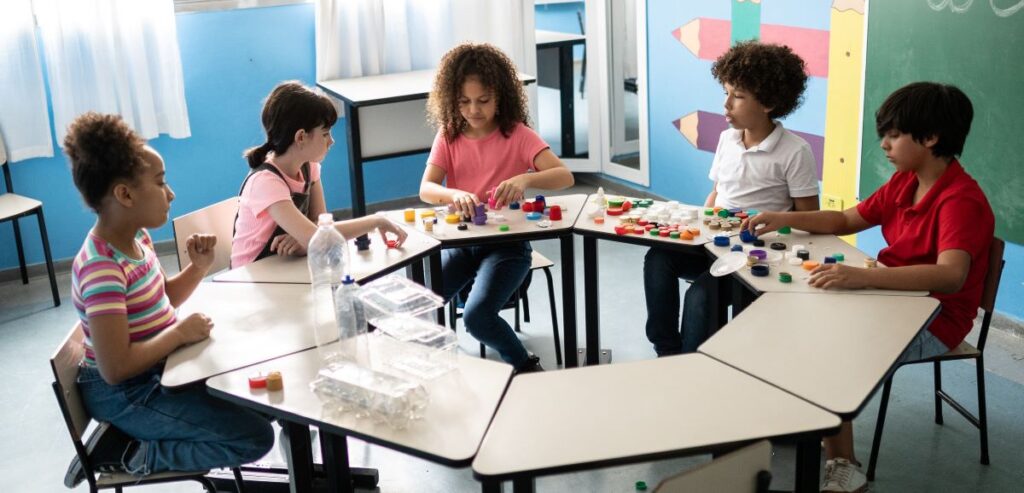By Bryan Goodwin
Few things within a school’s control have as much impact on student success as the curriculum. Studies show, in fact, that the extent to which a school has a well-aligned curriculum and ensures it’s taught in every classroom is one of the most important within-school variables driving school performance (second only to teaching quality).
This is the perfect time for school and district leaders to think about the extent to which your curriculum is clearly articulated, well aligned, focused on essential knowledge and skills, and enacted in every classroom—also known as a guaranteed and viable curriculum (GVC). As it turns out, delivering a GVC is not something you work on once and then move on from for good. As teachers join or leave the team, it’s easy for alignment to slip. And over time, it’s also easy for curriculum to expand until it becomes a proverbial mile wide and inch deep.
At McREL, we’re big believers in continuous improvement. We find that an occasional audit of a district’s curriculum and the professional supports its offers to align with desired student outcomes are essential to keep schools performing well. After all, great instruction of the curriculum has the power to create dynamic, engaging learning experiences and lift all learners.
So, where to begin? School leaders can set out on a successful path by following these four steps:
• First, review the essential content outlined in the standards that all students must know, understand, and be able to do. Then consider if your school has a clear agreement and a common understanding of these expectations. If expectations differ from classroom to classroom, it’s challenging to offer an environment that lifts all learners.
• Second, consider the performance criteria. They should set high expectations for learning, be communicated clearly, and applied consistently. Tools such as rubrics and learning guides can help define expectations for teachers and students alike.
• Third, examine how your school/district is supporting your teachers as they implement the curriculum. Do you provide ongoing support, regular time for collaboration, clarifying tools, and flexible schedules to ensure students achieve mastery of the curriculum? You can spend a lot of time and money crafting a curriculum that appears great on paper, but it won’t reach its full potential if you’re not offering support to the teachers using it daily in every classroom.
• Fourth, take stock of what’s happening in classrooms. Classroom observations and student performance are helpful datapoints, but often the most useful information comes from teachers themselves. What do they see as the strengths and weaknesses of the curriculum? Does it challenge students? Is it engaging?
The importance of this last step cannot be understated. Inviting teachers into the review and revision process not only provides practical insights that strengthen your curriculum, but even more important, helps a guaranteed and viable curriculum feel less like a top-down district mandate and more like a shared responsibility to ensure all kids benefit from challenging and engaging learning experiences.
Related Resources:
• Guaranteed and Viable Curriculum Infographic
• McREL Blog: Does your school have a guaranteed and viable curriculum? How would you know?
• Education Leadership Column: What’s on the Curriculum Menu?
This post originally appeared in our July 2023 Changing Schools newsletter. Click here to sign up to receive McREL’s free monthly newsletter.


